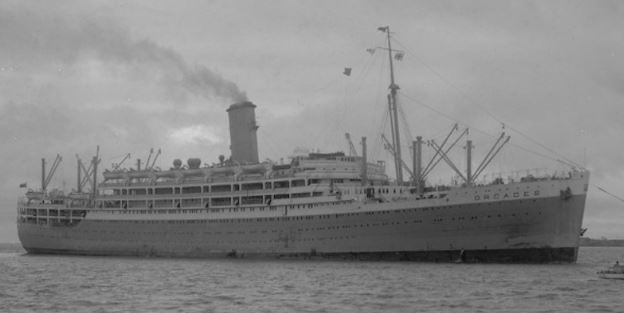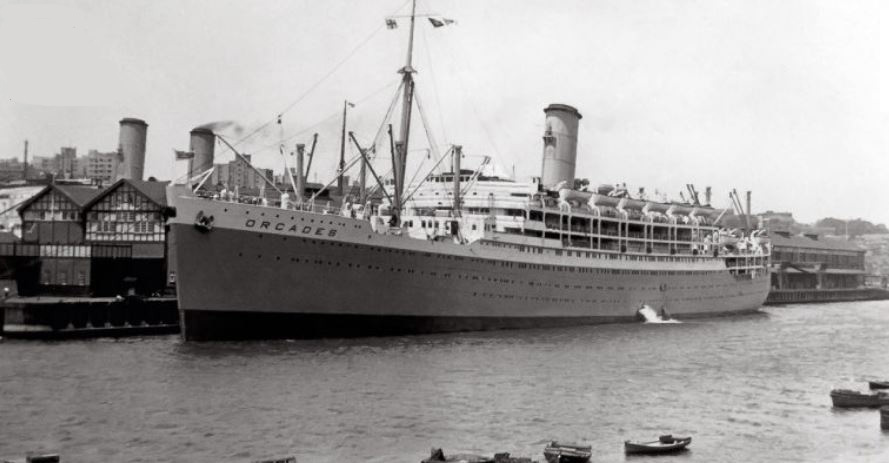Difference between revisions of "SS Orcades"
From Our Contribution
(→Soldiers carried) |
|||
| Line 47: | Line 47: | ||
==Soldiers carried== | ==Soldiers carried== | ||
| − | ===Port Tewfik to Oosthaven, Sumatra 31 January - 15 February 1942=== | + | ===Port Tewfik to Oosthaven, Sumatra & Batavia, Java 31 January - 15 February 1942=== |
2nd/3rd Machine Gun Battalion | 2nd/3rd Machine Gun Battalion | ||
* [[James Robert McCormack]] | * [[James Robert McCormack]] | ||
Revision as of 21:22, 4 December 2022
Contents
Remarks
Built for the Orient Line to operate between Australia and England [England – Mediterranean – Suez Canal – Ceylon – Australia (1937–39)]. The Admiralty requisitioned her in 1939 and had her converted into a troopship.
On 9 Oct 1942 the German submarine U-172 attacked her about 410 km south west of Cape Town. Orcades crew and gunners fought to fend off the submarine and save their ship, and it took U-172 two and a half hours and seven torpedoes to sink her. When she eventually sank she took 45 members of crew with her, but 1,022 survivors were picked up by the SS Narwik. Orcades Master, Charles Fox, was decorated by the Crown and Lloyd's of London for his bravery and leadership.
Armament:
- 1 × 6 in (150 mm) gun
- 1 × 3 in (76 mm) gun
- 4 × Oerlikon 20 mm cannon anti-aircraft guns
- 5 × machine guns
In 2014 the wreck of Orcades was discovered in 4,800 meters of water by survey company Deep Ocean Search.
Soldiers carried
Port Tewfik to Oosthaven, Sumatra & Batavia, Java 31 January - 15 February 1942
2nd/3rd Machine Gun Battalion
The 105 Transport Company on 17 February 1942 disembarked at Tanjong Priok (Jakarta's port)
The 2/2nd Australian Casualty Clearing Station

